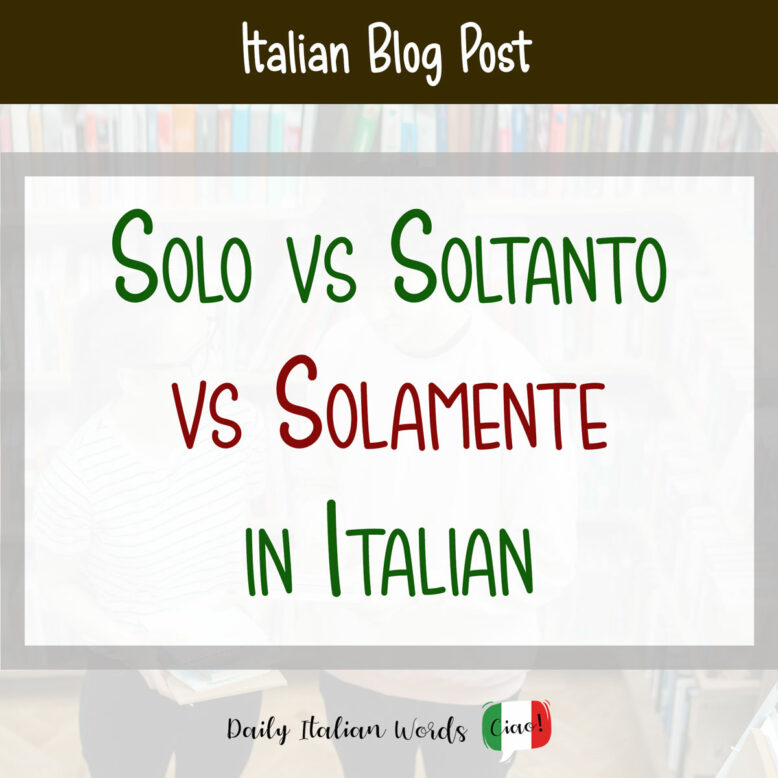In Italian, the words solo, solamente and soltanto all translate as only in English. When used as adverbs and conjunctions, they are completely interchangeable.

As an adverb:
When used as an adverb, all three correspond to the English adverb only (as in exclusively or merely). For example:
Mio figlio mangia solo pane e pasta.
Mio figlio mangia solamente pane e pasta.
Mio figlio mangia soltanto pane e pasta.
My son only eats bread and pasta.
As a conjunction:
When used as a conjunction, all three correspond to the English conjunction only when it is used as a replacement for the conjunction but.
Lo pagherei io stesso, solo che non ho i soldi.
Lo pagherei io stesso, solamente che non ho i soldi.
Lo pagherei io stesso, soltanto che non ho i soldi.
I would pay for it myself, only I don’t have the money.
Whether you choose solo, solamente or soltanto is ultimately a matter of personal style and, in some cases, which other words appear in the same or surrounding sentences. (For example, a speaker would probably choose solo or soltanto instead of solamente if he’d already used another word ending in -mente just seconds before.)
The only small differences is that solo tends to be used more frequently in speech as it is shorter and a little more colloquial. According to Treccani, soltanto can have a stronger emphasis when talking about limitations. For example:
Ti ha dato solo cinque euro?
Ti ha dato soltanto cinque euro?
He only gave you five euros?
But ultimately, your voice intonation can make the emphasis more or less stronger regardless of which word you use.
What about ‘solo’ as a noun or adjective?
Unlike soltanto and solamente, solo can also function as a noun and an adjective in Italian.
As a noun:
When used as a noun, solo translates as the only one, the one, or the only person in English. A close synonym in Italian is unico which also means the only one. Solo is used exclusively for males, whereas sola is applied to females. For example:
Credo di essere il solo a pensarla così.
Credo di essere la sola a pensarla così.
I believe I’m the only one who thinks this way.
In the world of music, it indicates the parts performed by a single voice or instrument, or a soloist. You can also say a solo or assolo.
Il concerto include un solo di violino.
The concert includes a violin solo.
As an adjective:
When used as an adjective, solo is equivalent to the English alone or by oneself in the sense of being companionless or unaccompanied. For example:
Ha paura di rimanere solo in casa.
He is afraid to stay at home alone.
The adverbial phrase da solo is also very common, especially in spoken Italian.
Ha paura di rimanere da solo in casa.
He is afraid to stay at home alone.
Heather Broster is a graduate with honours in linguistics from the University of Western Ontario. She is an aspiring polyglot, proficient in English and Italian, as well as Japanese, Welsh, and French to varying degrees of fluency. Originally from Toronto, Heather has resided in various countries, notably Italy for a period of six years. Her primary focus lies in the fields of language acquisition, education, and bilingual instruction.


